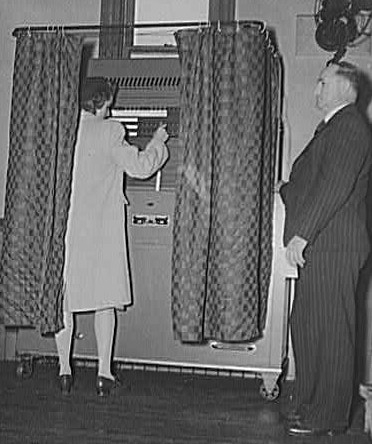PALADIUM
opinion and publicly available information, often including home addresses, about people most of whom are or were government officers or employees
https://paladium.nfshost.com
https://paladium.nfshost.com
 NEW YORK CITY ELECTION CANDIDATES' HOME ADDRESSES
NEW YORK CITY ELECTION CANDIDATES' HOME ADDRESSES
Below are PDF files almost all of which were made by NYC BoE (New York City Board of Elections). The files show home addresses of many election candidates .
3 November 2009 special election for 23rd CD
This is a list of a few candidates in the 23rd Congressional District's election. This is a general election, not a primary. This is a special election, not a regular election held in November of even-numbered years.
4 November 2008 general election
37-page PDF file with home addresses of the many candidates for president, vice-president, judge, and Federal and state legislator
November 2001 general election (for example, mayor Michael R. Bloomberg and district attorney Robert Morgenthau)
In New York State and many other places, a candidate is defined by his name and home address. If a person wants to have his name on a ballor so that voters can vote for him, voters will be asked to sign a petition that his name be on the ballot. The petition will identifiy him by name and home address. If a voter wants to know for which candidate he signs, he signs for the candidate whose name and home adress is on the petition. For hypothetical example, a voter might sign a petition asking that John Smith who lives at 1234 Liberty Street in Liberty City (not some other John Smith) be on the ballot. Boards of elections publish documents with the names and home addresses of candidates whose names will be on the ballot. Some of those documents became the PDF files to which we link below.
Below this paragraph is a discussion of the Board of Elections and related topics.
2009apr28.
This discussion may state some facts imperfectly. We suggest that you verify any statements which interest you.
"BoE" has two meanings, a narrow one and a broad one. The broad one is a governmetn agency which conducts elections and keeps the records of those elections; for example, ballot petitions and campaign finance reports. The narrow definition is a ten-member committee which controls the agency. The ten memebers consist of two representatives per county for each of the city's five counties. The two representatives per county are a Democratic repesentative and a Republican representative. For example, the Democratic Party in Kings County (Brooklyn) has a representative on the ten-member committee. At the beginning of a committee meeting, each of the ten members explicitly identifies himself by name, county, and party. There is much politics within political parties in New York City. Each of the ten representatives is a de facto ambassador, for the ruling faction of his party in his county, to the committee. The ruling faction is called "regular" or "machine". Opposing factions are called "insurgent". In summary, the agency is ruled by a committee which comprises, in effect, representatives of the Democratic and Republican machines in each of the city's five counties.
The BoE agency has employees who got their jobs through the machines. We guess that a function of some of those employees is to keep the machines informed of what the BoE agency does. We guess that some of those employees may have their BoE jobs as patronage in exchange for services they provided outside BoE.
New York City's municipal government is notoriously corrupt. BoE practices help corruption. For example, the BoE does not give receipts for petitions and other documents filed with it. The Board does not provide ordinary receipts. The Board does not give conformed copies, a kind of receipt often provided by government agencies. The Board does not give receipts. BoE refusal to give receipts facilitates concealment and destruction of documents possessed by the BoE. This foreseeably facilitates political corruption. It is extraordinarily suspicious for the Board to refuse to provide receipts. There is a legal question, which we will not here disucss, whether the policy of refusal is probable cause regarding any of the Board's officers.
Sometimes, people want to buy, on computer media, information, which is a matter of the public record, from the BoE. The Board's computer staff may first try to find out who wants the inforamtion. Powerful people get the information reasonably promptly. Others don't. To those who aren't powerful, the computer staff will stall as long as it can.
Typical conduct of BoE staff:
The BoE's crookedness helps keep the city's politics crooked.
Many BoE records are availabel to members of the public. This is supposed to help keep elections honest. Any member of the public can examine BoE records (for example, contribution records or petitions) and thus discover improperiety. The system works terribly. Many members of the BoE staff improperly resist and rebuff persisstent requests for records (for example, by lying that records are in a different office).
By the way, there is a question of what happens to money paid to buy New York City judgeships and other government offices. What happens to the bribe money? We do not know. The remainder of this paragraph is largely a guess in the form of a hypothetical examples. Let's say that a lawyer who lives in Brooklyn wants to become a judge in Brooklyn. The lawyer talks to a fixer closely related to Brooklyn Democrats. The chairman of KCC (Kings County Committee of the Democratic Party) then authorizes sale of the desired judgeship to that lawyer. Not all political entities have to report political contributions they receive. Political parties have to report contributions. Candidates often authorize committees to collect contributions. Those authoized committees have to report. There are political entities which have no duty to report contributions they receive. The lawyer is told to which political entitites he should contribute. He contributes to them. Most lawyers contribute using their lawyer firm's checking account or their personal checking account. The price is normally three times the judgeship's annual salary rounded off (to the nearest hundred thousand dollars, for example). We guess that the bribe is rounded because it might be embarrassing for a defendant to explain why someone paid precisely three times a judge's annual salary before bing nominated for a judgeship by the party receiving the payment. The lawyer is told that the amount he should pay was rounded down from a higher amount.
Banks have records of check transactions. If twenty judges each earned $111,000.00 annually in their first year on the job, each paid $300,000.00 for his judgehsip, as shown by bank records of checking accounts of the judge (when he was a lawyer) and of his former law firm. He does not make one payment of the entire purchase price (namely, $300,000.00). He does not make many consecutive payments. For example, he does not write out thirty checks in a row, each for ten thousand dollars, then simultaneously mail them all, each in a separate envelope. The payments are made in varying amounts in a brief period, perhaps about a month.
We'll call the receiving entities GCC. The lawyer's contribution is never reported to the government. The lawyer does not report his payment. We guess that the GCC entities (fund-raising entities) pay the money to HCC (one or more buffer entities), which pays it to ICC (one or more entities which spends the money to help the Republican Party as the KCC chairman wishes). GCC, HCC, and ICC are entities (or groups of entities) which ostensibly have no duty to report contributions. ICC has no idea that the lawyer, a judgehsip, or GCC were involved. ICC pretends that it is independent of KCC but really uses the money exactly as the KCC chairman wants. For example, ICC may help some candidates by sending pro-candidate mail to voters. The money is never given to a candidate's authorized committee or to any other entity with a duty to report contributions. KCC has a duty to report contributions but nominally never got the money. GCC, HCC, and ICC pretend that they are independent of KCC, not KCC's alter egos. We guess that GCC, HCC, and ICC are all in New York State, not in other states or in foreign countries. KCC has an officer who recommends whom KCC should nominate for judgeships. The KCC chairman tells the officer to recommend the lawyer. The officer recommends the lawyer. KCC nominates the lawyer for the judgehip. KCC arranges cross endorsement with KCC's Republican counterpart. The lawyer, who is a Democratic and Republican nominee for judge, is elected. He does not know what happened to the money he paid. GCC, HCC, and ICC don't last long.
After the lawyer pays the money, a judgeship is arranged for him. Then, the KCC chairman calls him to tell him the good news: he soon will be a judge.
Above, we present a complicated guess about three phases of money-handling entity: GCC (fund-raiser), HCC (buffer), and ICC (spender). Some party organizations may have a much simpler system. Perhaps buffer HCC is eliminated, so that receiving entitities GCC pay the money directly to spending entities ICC. Perhaps even the GCC phase is eliminated, so that the lawyer directly pays the ICC entities, which then spend the money to help the party.
A candidate for judge has no duty to report contributions he made in the 36 months prior to his nomination. The winner of a judicial election, not yet sworn in as a judge, has no duty to report contributions he made in the 36 months prior to election day. A new judge has no duty to report contributions he made in the 36 months prior to his being sworn in. The BoE has some campaign finance records but they do not show what happens to money paid for judgeships and other government offices.
Some judges get their job from state officers in Albany, the state capital. The judges are nominated by the governor, not jointly by the Democratic and Republican parties. The judges start work without being elected by voters. KCC sells those judgeships, too.
If we wanted to demonstrate that our judgeship-buying guess is right, we would chosse a group of judges who were paid different salaries in their first year on the job, some starting at a higher salary than others. We would try to show, from their banks' checking account records, that the judges, before they were nominated, paid an amount of money which was a function of the first year's salary.
We received gossip that federal judgeships are sold.
This guess-based discussion uses hypothetical examples. For example, we do not imply that Brooklyn, Democratic judges are more corrupt than others. Our guesses are clearer if we give examples, so we create hypothetical examples.
The remarks above do not necessarily apply to any person or entity named in this Web site.
| ||||
|---|---|---|---|---|
| 2010 NY Pistol Permits | Impropriety in USA Gov't | Home Page | ||
| New York Main Page | Previous Page | Next Page | ||
